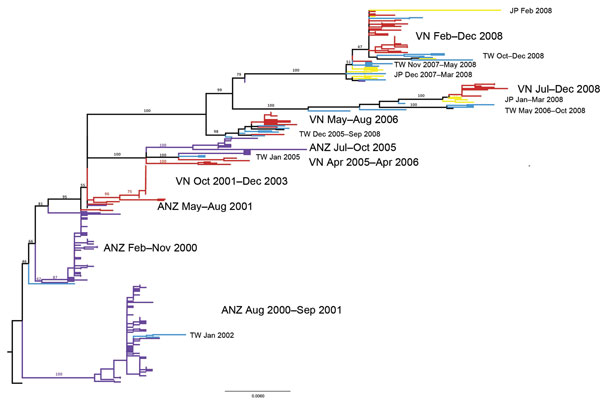Volume 19, Number 11—November 2013
Research
Migration and Persistence of Human Influenza A Viruses, Vietnam, 2001–2008
Figure 2

Figure 2. . Maximum-likelihood phylogenetic tree (hemagglutinin segment) of the 300 sequences that comprise the regional influenza (H1N1) dataset. Tree is rooted on A/New Caledonia/20/1999, and bootstrap values are shown on key nodes. Branches are colored by location: red, Vietnam; purple, Australia or New Zealand; yellow, Japan; blue, Taiwan. Labels are shown directly to the left or right of the clades they are describing. JP, Japan; VN, Vietnam; TW, Taiwan; ANZ, Australia and New Zealand. Scale bar indicates nucleotide substitutions per site.
Page created: October 31, 2013
Page updated: October 31, 2013
Page reviewed: October 31, 2013
The conclusions, findings, and opinions expressed by authors contributing to this journal do not necessarily reflect the official position of the U.S. Department of Health and Human Services, the Public Health Service, the Centers for Disease Control and Prevention, or the authors' affiliated institutions. Use of trade names is for identification only and does not imply endorsement by any of the groups named above.